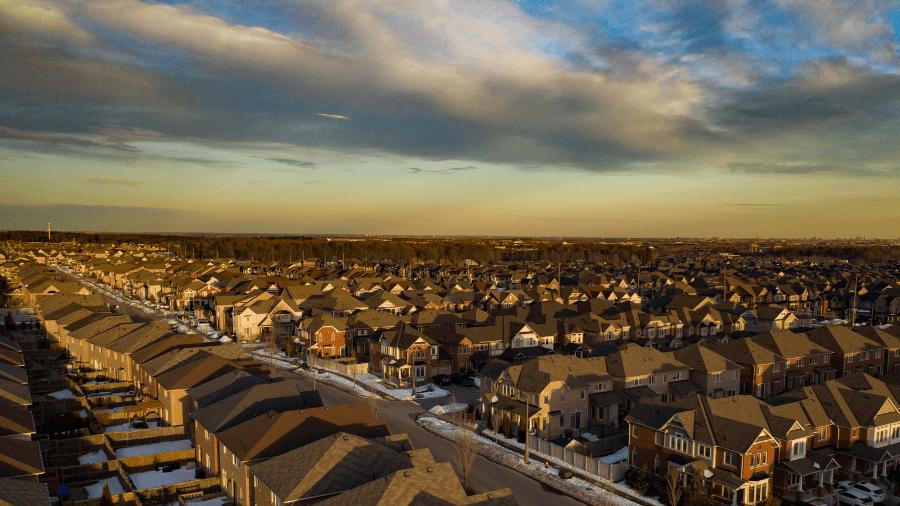This article originally appeared in Canadian Affairs.
By Seth Kaplan, May 8, 2024
In what has been described by US Surgeon General Dr. Vivek Murthy as an “underappreciated public health crisis,” many countries are facing rising loneliness and social isolation. People are becoming less trustful and more alienated, feeding declines in a sense of belonging and the polarization of politics.
Canada is no exception. More than two-fifths of Canadians feel lonely some or all the time, with roughly 25 per cent saying they are not satisfied with the number of friends they have. The situation is worst among the growing population of single people and those who live alone.
Indeed, Canadians may be especially vulnerable. First, the population is scattered across a huge country, making it harder to bring people together. Research shows that low density makes it more difficult to build connectivity.
Second, the extraordinarily high levels of immigration mean citizens are less rooted in particular places and less connected to other parts of the population. Third, the large number of Indigenous people with different cultures and histories of exclusion may make social integration harder to achieve in many places.
Fourth, the country, like all former British colonies, is highly individualistic, yielding more atomization and weaker social ties. Lastly, a sharp decline in religion means the strongest force likely to counter these trends is no longer an animating factor.
In earlier generations, every person mattered in an obvious way because their contribution to a place mattered. Yet many Canadians today function as consumers with little connection to each other beyond a transactional value. The belonging and membership that emerged organically in the past must now be nurtured intentionally, place by place.
Canadian party platforms contain few suggestions for how to do this practically. They should consider adopting a neighbourhood-centric approach to address growing social problems. In short, Canada needs to create conditions that catalyze Canadians to form the social bonds that will enable them to take better care of each other and themselves.
To start, public leaders could re-envision our urban, suburban and rural landscapes around clearly demarcated neighbourhoods, with a renewed emphasis on bolstering in-person exchange and the development of organizational life.
Locales with strong identities, defined boundaries, institutions that lubricate social exchange and places where people regularly congregate are more likely to flourish socially. Every neighbourhood, across socioeconomic strata, would feature green spaces, retail districts, schools, well-endowed public areas, hubs, beautiful street landscaping and municipal buildings.
Canada’s federal, provincial and local leaders need to ask how legislation, government structures and various agencies organize the state’s interaction with society. Federal money currently gets disbursed into silos to maximize sector-specific expertise.
What if, instead, these encouraged government bodies to pull together experts to work on specific locales for an extended period? Programs would be judged on neighbourhood results rather than total units disbursed. Local public servants would become facilitators rather than deciders, using their intimate knowledge of streets, businesses and residents to nurture change rather than impose it.
Local governments can create mechanisms for residents to develop plans or projects for their areas. Neighbourhood associations, for example, bring local leaders together to debate priorities, solve problems, establish a wide range of partnerships and leverage resources that strengthen social ties and give residents more ownership of their places.
In Cambridge, Ont., for example, every resident is part of one of 11 neighbourhood associations. Although the associations are funded by the city, it cedes significant power to residents to determine how the association is used. Rather than focusing on services to be delivered, these associations invite residents to curate activities that matter to them.
Local governments should also encourage the development of many more “third places” — coffee shops, restaurants, hair salons, children’s activities, block parties and community centres — to encourage people to gather neighbourhood by neighbourhood. Too many places in Canada have few or none of these, making it hard to nurture local relationships. This may require changes to zoning and other rules that make these hard to establish.
Governments could even fund individual residents to build confidence in their neighbourhoods. In Oswego, N.Y., there have been huge returns on investment by simply offering matching grants of up to $1,000 per home as well as additional resources to city blocks where individuals want to co-operate to improve the look of their streets.
We should not underestimate the strength of the bonds that shared geography can create between people who might otherwise feel little connection to each other and be on opposite sides of class or race or political divides.
Canada will flourish when all its neighbourhoods do. What is needed is not more top-down action, but sideways action, neighbourhood by neighbourhood, that reaches the far corners of a vast land.
Seth D. Kaplan, a lecturer at the Paul H. Nitze School of Advanced International Studies at Johns Hopkins University, is the author of the book, Fragile Neighborhoods: Repairing American Society, One Zip Code at a Time.






